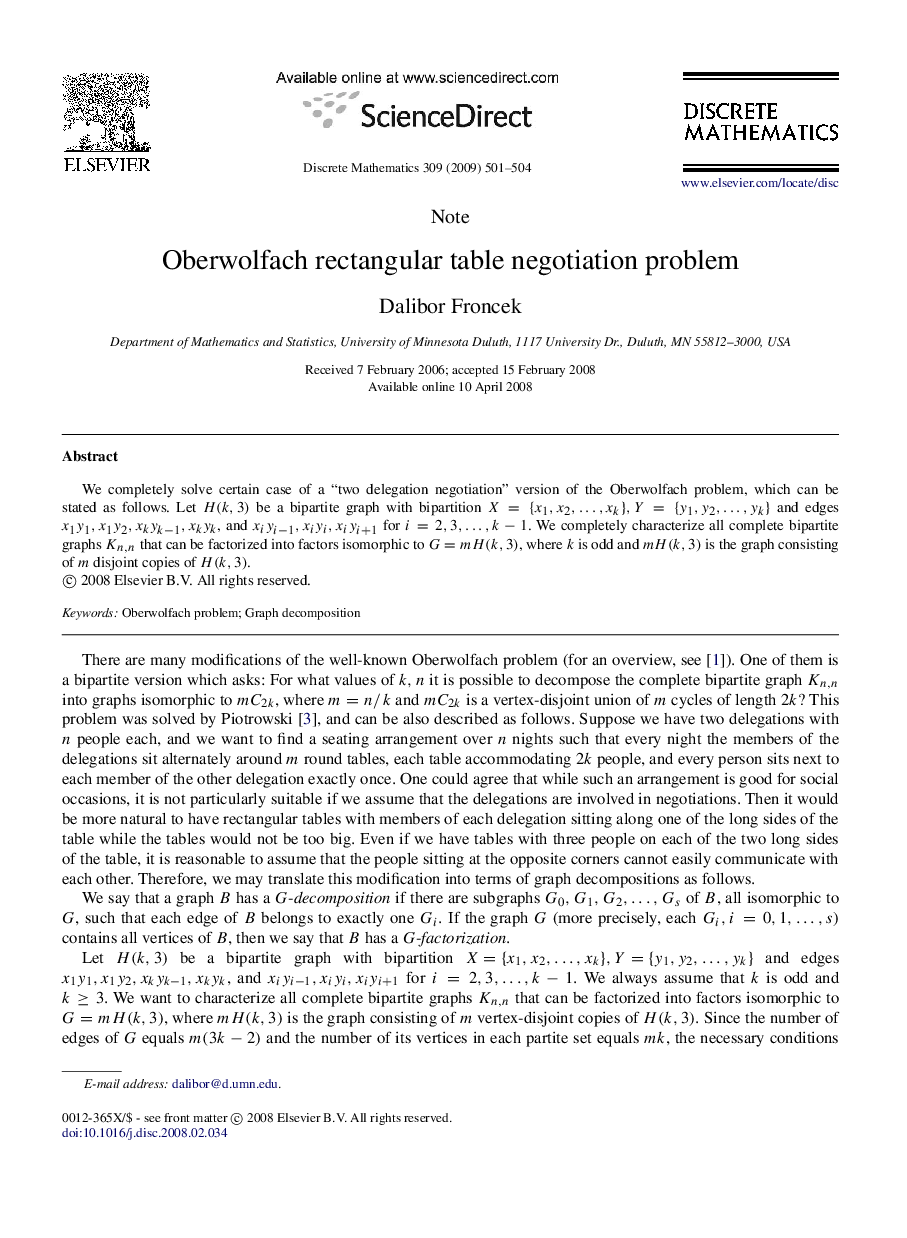| Article ID | Journal | Published Year | Pages | File Type |
|---|---|---|---|---|
| 4648678 | Discrete Mathematics | 2009 | 4 Pages |
Abstract
We completely solve certain case of a “two delegation negotiation” version of the Oberwolfach problem, which can be stated as follows. Let H(k,3)H(k,3) be a bipartite graph with bipartition X={x1,x2,…,xk},Y={y1,y2,…,yk}X={x1,x2,…,xk},Y={y1,y2,…,yk} and edges x1y1,x1y2,xkyk−1,xkykx1y1,x1y2,xkyk−1,xkyk, and xiyi−1,xiyi,xiyi+1xiyi−1,xiyi,xiyi+1 for i=2,3,…,k−1i=2,3,…,k−1. We completely characterize all complete bipartite graphs Kn,nKn,n that can be factorized into factors isomorphic to G=mH(k,3)G=mH(k,3), where kk is odd and mH(k,3)mH(k,3) is the graph consisting of mm disjoint copies of H(k,3)H(k,3).
Related Topics
Physical Sciences and Engineering
Mathematics
Discrete Mathematics and Combinatorics
Authors
Dalibor Froncek,
